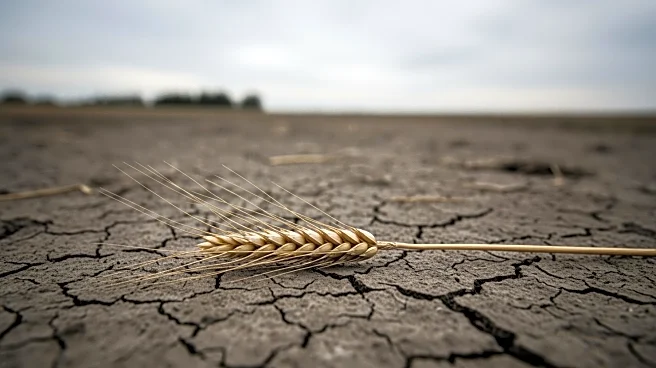What's Happening?
A survey conducted by the Federal Reserve Bank of Minneapolis reveals ongoing pessimism in the agricultural economy across the upper Midwest. The survey, which includes responses from about 50 agriculture
lenders in Minnesota, Montana, North Dakota, South Dakota, Wisconsin, and Michigan, indicates declining farm incomes and reduced capital spending. Despite record production levels, low commodity prices and increased reliance on government payments contribute to the negative outlook. Interest rates remain elevated, affecting financing for new machinery and land purchases. The survey also highlights challenges in farm labor, with 48% of lenders identifying it as a serious issue.
Why It's Important?
The persistent pessimism in the upper Midwest's agricultural sector reflects broader economic challenges facing rural communities. Declining farm incomes and reduced spending impact local economies and can lead to increased financial strain on farmers. The reliance on government payments underscores vulnerabilities in the sector, which may affect long-term sustainability. The survey's findings highlight the need for policy interventions to support farmers and stabilize commodity prices. Additionally, the labor challenges indicate potential workforce shortages that could hinder agricultural productivity and growth.
Beyond the Headlines
The survey's findings suggest potential long-term shifts in the agricultural sector, including changes in land values and rental rates. The increase in bankruptcy filings points to financial distress among farmers, which could have broader implications for rural communities. The labor challenges may require innovative solutions to attract and retain workers in agriculture. The survey also raises questions about the impact of global market conditions on local agriculture, emphasizing the need for strategic planning and support.











